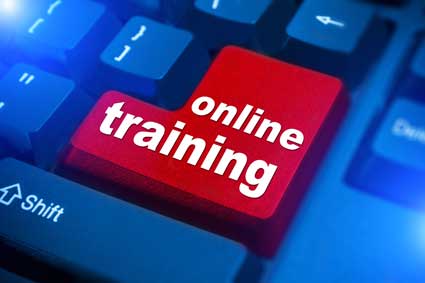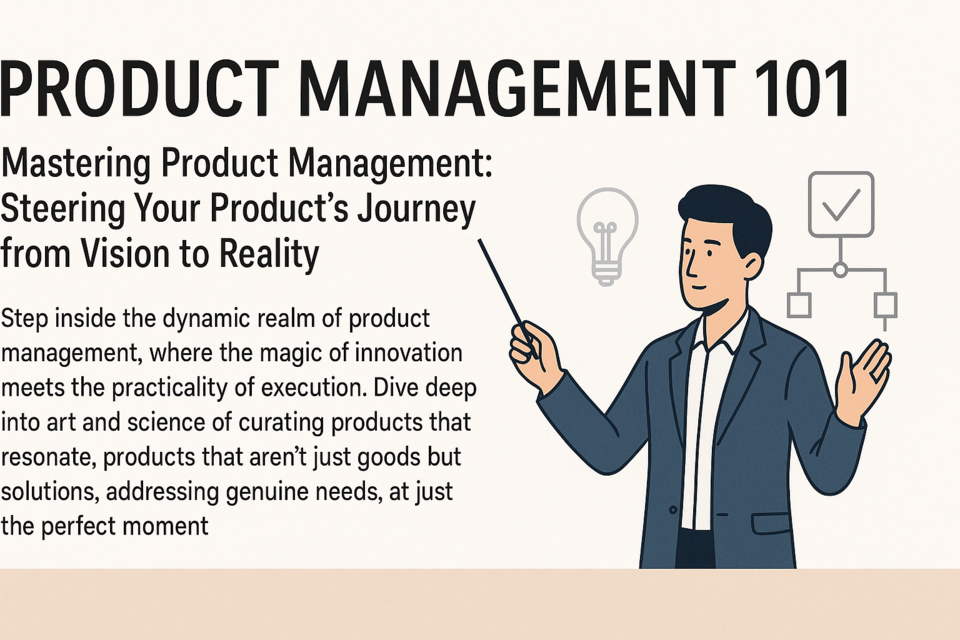With any career, you need to have some level of development in order to get started. Some choose to seek out professional degree programs at universities while others take training seminars or are self-taught. The circumstances are the same for those looking at a career in business coaching. There are multiple ways you can take, and the choices you make in your education and development are entirely up to you.
As you begin your business coaching career, you may wonder what additional training you may need outside of this article. Are you all set once you close your textbook for the last time and walk away with your certification? Unfortunately, you're never really done. Business coaching requires constant learning, as there are always new things emerging in your industry and the industries of your clients.
This article will cover the additional aspects of your education that you might not think of when you begin. It will also discuss how you can continue your education and development as a business coach for years to come.
After Your Training
This article is, essentially, the bulk of your training for your business coaching career. You will have knowledge and experience that you are bringing with you into the article, obviously, but your training is there to teach you how to apply it. As with all things in life, not everything can be taught in a classroom. There may be a few things that you will truly learn once you have your certification in hand and have entered into the field. That experience and knowledge you brought with you into the article? Chances are you gained most of it outside of the classroom, often after making a mistake or two.
Learning in a non-classroom setting does not mean that taking a class isn't worth it-apologies to those who excitedly thought they could just shut this textbook and walk away. What you learn in a business coaching course are the theories and technical aspects behind your career. You learn that information now, before you are in the field, so you have a steady foundation to work on.
When you enter into the business coaching field, you may find that you underestimated a few things. You encounter a problem that wasn't in your training or that you are completely unfamiliar with. Everyone's experience is different, and you shouldn't let those issues stop you from developing your skills and becoming the best business coach you can be.
- Finding a balance-Some coaches find themselves facing the challenge of balancing the roles that they need to play for their clients. Often you need to be more than just a coach, but a leader, mentor, friend, and teacher all at once. 1 You may not realize it, but in your personal life you also play many roles harmoniously. Finding that same degree of balance in your professional life may take time and a little trial-and-error to get it right.
- Running a business-Perhaps you are starting your business coaching career with preexisting knowledge and experience of running a business. Congratulations, you're already passed that hurdle. However, not all business coaches have run their own business solely by themselves. It can be overwhelming and you may question if you need the help of a business coach yourself to get started. Running your own business, solo, may come with a learning curve and a few bumps as you get started.
- Too much, too fast-Sometimes, you do need to walk before you can run. You might be so excited to start your business coaching career that you dive right in and dive deep. Occasionally, some coaches dive too deep. You will need to remember that you are human and have limits, and finding your work pace can take some time and effort, just like finding your work balance can.
Staying Up To Date
As part of your development and continued education as a business coach, you will need to do what you can to stay as up-to-date as possible. Most experts agree that the coaching industry is going to need to stay in a constant state of progress if it wants to keep up with its clientele. 2 Things change, the unexpected happens, and predictions go awry. Keeping up with the goings on of the industries of your clients will help put you ahead of your competition. When there's an estimated 53,300 active coaches worldwide, anything that can safely put you at the front of the line is something you should consider. 3
As the old saying goes, knowledge is power. The more of it that you have, the more likely you will be able to stay sharp, and have an edge over your competition. So what can you do to stay up to date?
- Check out industry news-Looking at what is going on in your clients' professional industries is going to help you prepare for what they might ask for and need in coaching. Pay attention to emerging trends, ideas, and anything that might affect your coaching. Don't forget to check out your own industry, as changes in business coaching can be beneficial or harmful for you.
- Conventions, and Conferences-For every industry, there are times where associated professionals can meet up and get caught up on the goings on in their field. Most conferences and conventions will allow you to mingle with your peer and swap information. You'll be able to talk with industry leaders and hear about the industry's progress straight from the source. You can also go to conferences for your clients' industries, and gain information from there as well that you can use. Plus, you might get the added bonus of growing your network and customer base.
- What's your competition up to?-Part of going to conferences is you get to see what your competitors are up to. What are they doing to get clients that you're not? Likewise, you can see what they're doing that isn't bringing customers to their door and avoid doing it yourself. Your competition does not need to be viewed as the enemy either and you can network with them. Networking can be used to share valuable information that you can use to stay up to date.
- What are your clients asking for?- The demands of the industry are going to shape a lot of your professional decisions as a business coach. A part of that involves what your clients want. It is very easy to fall behind in your industry if you are not listening to what your clients' want, which can cause them to pass you over for another coach. Your clients are also going to be paying attention to their own industries and may find out things before you do through their own network. Listen, pay attention, and you may learn something new.
-
Your Improvement
As part of your development as a business coach, you will need to do things to improve your skills. Staying up to date on the comings and goings of your field will only do you so much good. Improving your skills as your career progress will ensure that you don't get sloppy. You can know all the moves in theory, but if your footwork is rusty then no one is going to want to dance with you.
Just as you can add to your knowledge, you can also add to your skillset and improve upon what you already have. It is your responsibility to keep your skills up to a level of standard, and you should do so regularly. Some of the following are just some of the options you can choose from to help improve your skills and abilities.
- Take Seminars and Workshops-You can get more out of attending industry related conferences and conventions than just news. Most of those events will offer seminars and workshops for attendees to learn new skills and polish their old ones. These sessions are often lead by your peers from the industry who have proven to be successful and have years of experience in the industry. They were, once upon a time, in your shoes and can relate to you.
- Review Your Training-Most of your skills are going to develop by the time you've finished your training to be a business coach. Sometimes, going back to your roots is the best method of improving your abilities. Your training gave you the methods that you use with your skills. Sometimes, those same methods can be used to rebuild or strengthen those same skills. When you went through training, you had to apply those skills to those methods in order for them to work. Do they still work now? How did you get them to mesh during training? What did you do or not do during training to reach the acceptable standard for certification?
- Test Yourself-Sometimes, you may find that you suspect your skills are falling behind. As a type of preemptive strike against your skills weakening, you can test yourself on a regular basis. You can use those same puzzles to test your skills and push them towards improvement. The difficulty of the tests you choose can be steadily increased so you actually are pushing yourself with them. If the tests are starting to become too easy, then you're not pushing yourself and you run the risk of letting the quality of your skills slip.
- Listen to Feedback-The importance of feedback has already been discussed , but it really can be an important tool for improving your skills. The feedback you receive from your clients can be the easiest way to keep track of your skillset's proficiency. If you regularly ask for feedback from your clients, or include an evaluation as part of your coaching process, you can take that information and use to monitor for any changes that can prove harmful to your career. Using the feedback, you can catch your skills slipping before it becomes a problem.
Expanding Your Business
One of the final things that you can do in your business coaching career in terms of development is to expand your business. Growth is often the surest sign of development and progress in professionalism. If you reach the point during your career where you can expand your business coaching service, then chances are you are doing something right.
Expansion will probably become one of your business goals for your coaching service. Reaching the point where it becomes possible may take time and effort, but it can be possible. The work that you put into your coaching business will determine when and if expansion is going to be possible. In order to get to that point, there are a few things that you can do in the development of your business coaching career in addition to the above.
- Maintain your certification - You cannot reach the point of expansion if you let your coaching certifications and business licensing slip. Keeping up with the different aspects of your service that allow you to operate will allow you to stay on course. Mark when everything is due for renewal and keep up with the necessary requirements to stop yourself from letting them lapse.
- Plan for the unexpected - Things can sneak up on you when you least expect it. You have the potential to be faced with obstacles that seemingly come out of nowhere-remember that new things arise in the industry that can change how things are done. Having back-up plans in place to keep yourself on track in the event of significant changes, both personally and professionally, can ensure that your business coaching career lasts long enough for it to expand.
- Continue your education - As part of your certification or professional organization membership requirements, you may be have to seek out continuing education courses. While you can do some continuing education tasks like those discussed in this article on your own, taking a class can give you an added boost. Continuing education course for business coaches often give you the steps and tools you need to expand your business.
























